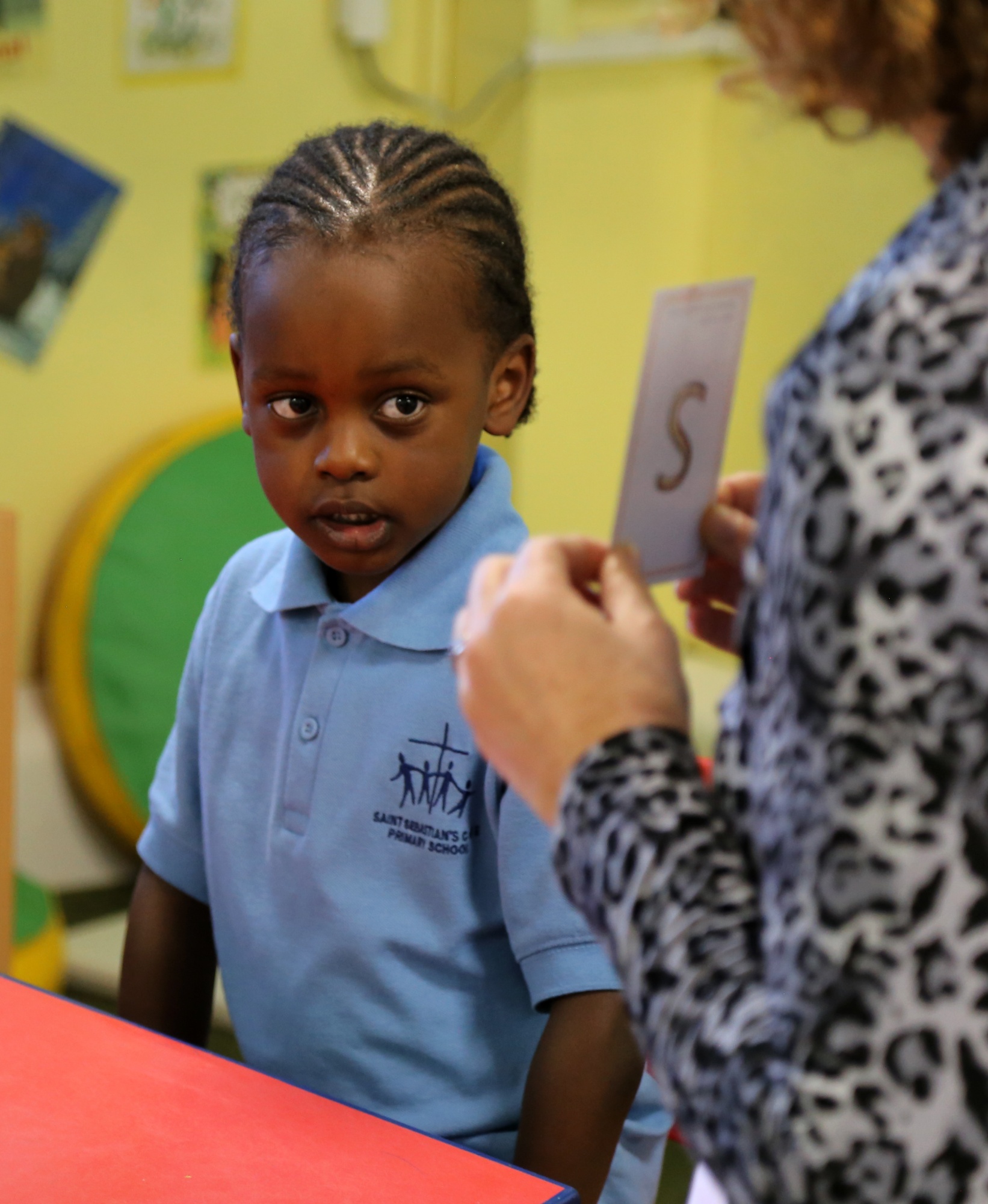Curriculum Visions
English teaching is based on the National Curriculum for English and in studying English the pupils develop skills in speaking, listening, drama, reading and writing. The national curriculum for English reflects the importance of spoken language in pupils’ development across the whole curriculum – cognitively, socially and linguistically. Spoken language underpins the development of reading and writing. The quality and variety of language that pupils hear and speak are vital for developing their vocabulary and grammar and their understanding for reading and writing. A sound grounding in basic skills of reading and writing enables the children to express themselves creatively, communicate effectively and also gives them access to a range of rich literature. English skills are used and applied in all areas of the curriculum.
At Saint Sebastian's we use the Read Write Inc. program which is proving extremely successful in helping our children develop their abilities and enjoy the wealth of information found all around them. All children are encouraged to enjoy and value reading. Children begin to bring their reading books home in Reception, and are given a book bag to keep the books safe. Children in Reception and Key Stage 1 are paired with a Reading Buddy from Key Stage 2 so that children can enjoy reading together and encourage one another. We have a well-stocked, computerised library which children and their families are encouraged to visit regularly, and children are given the opportunity to be Librarians during their time at the school. In KS1, we use a wide range of reading books from different schemes and do not follow one scheme in particular.
In phonics, we use Read Write Inc.
A wide range of experiences and stimuli are provided to help children become interesting and independent writers and writing skills are applied and used across the curriculum. A carefully structured programme of spelling and writing guides the children’s development through the school. We aim to develop good handwriting and expect a high standard of presentation.
The skills of speaking and listening are promoted throughout school life and children have the opportunity to participate in class discussions as well as debates and more formal presentations. Ample opportunities are also given for drama and formal and informal speaking and our pupils are encouraged to speak to a wider audience through events such as assemblies, church services, school productions and showing visitors around the school.
We aim for all children to have a positive attitude towards Maths and view it as an interesting and valuable subject. It is our intention, that every child will develop a good understanding of the subject, equipping them with the skills of calculation (including a secure recall of the key facts), reasoning and problem-solving, that they need in life beyond school. We endeavour for all children to be confident learners, working collaboratively, co-operatively and independently and that they are able to express their ideas fluently using mathematical vocabulary.
Science begins in the Early Years with simple investigations and close observations of the world around us. This approach is continued throughout Key Stage 1 with a gradual introduction of recording skills and the extension of the children’s ability to use scientific language to describe their findings and to ask “Why?” and “How?”. During Key Stage 2 the children are becoming more familiar with scientific concepts and are encouraged to make predictions, record findings and choose the right equipment for the investigations of a more complex nature. All children are encouraged to develop enquiring minds and to play an active part in the discovery of their world and how it evolved.
Our computing curriculum is designed to equip children with the ability to apply their knowledge and understanding living in an increasingly technological world. It is our intention, that every child will develop a good understanding of the importance of online safety. To have a progressive curriculum that allows for the building of skills that they need in life beyond school.
As a Christian school, the RE curriculum aims to help our children acquire a thorough knowledge and understanding of the Christian faith. We include in our curriculum the teaching of other world religions, including those practiced by members of our school community. We aim for our children to be able to hold balanced and well-informed conversations about religion and beliefs in the world today. The RE curriculum intends to promote religious understanding and respect, and to challenge prejudice, discrimination and stereotyping.
Click on the link below for the Church of England Statement of Entitlement,
re-statement-of-entitlement-for-church-schools.pdf (churchofengland.org)
Click on the link below for the locally agreed RE syllabus.
Wokingham Pan-Berkshire RE Syllabus 2018-2023_1.pdf

